Introduction
Delaware may be one of the smaller states, but it offers robust pathways for those pursuing a teaching career. Becoming a licensed teacher in Delaware requires meeting specific standards set by the Delaware Department of Education. Prospective teachers must hold at least a bachelor’s degree from an accredited institution and complete a state-approved educator preparation program. This includes a student teaching internship (typically a full semester in a classroom) and often a capstone assessment of teaching skills. Candidates must also pass required exams—usually the Praxis series for basic skills and subject knowledge—before being certified. For individuals who already have a bachelor’s degree in a non-education field, Delaware provides alternative certification routes (such as the Alternative Routes to Certification program or a Master of Arts in Teaching) that offer a pathway into teaching without completing a second bachelor’s degree. These various avenues, combined with Delaware’s relatively high teacher salaries and support initiatives, make the First State an attractive place to earn teaching credentials and begin an education career.
What the State of Delaware Requires to Become a Teacher
To become a teacher in Delaware, you must satisfy several state requirements for licensure and certification. First, you need a minimum of a bachelor’s degree in an appropriate field and completion of a teacher preparation program approved by the state. Delaware mandates that all teacher prep programs include student teaching experience – at least 91 days of supervised teaching in a classroom – to ensure new teachers have hands-on practice. During or after your program, you must pass the required examinations. Delaware uses the Praxis exams: aspiring teachers take the Praxis Core (testing reading, writing, and math basic skills) unless exempted by SAT/ACT scores, and the Praxis II Subject Assessments (or equivalent, such as ACTFL for world languages) in their content area . The state also requires a passing score on a teacher performance assessment (such as edTPA or ETS PPAT) as evidence of instructional competency before full licensure . In addition, candidates must undergo a background check (including fingerprinting and a child protection registry screening) to ensure the safety of students . Once these criteria are met, you can apply to the Delaware Department of Education for an Initial License (the entry-level license for new educators) and a Standard Certificate in the subject or grade level you will teach . Delaware differentiates the license (your general clearance to teach, valid for a few years) from the certificate (which specifies your teaching field, such as elementary education, math, science, etc.) . By fulfilling the education, exam, and background requirements, and by applying for the appropriate license and certificate, you will meet Delaware’s standards to become a teacher.
Top Delaware Schools for Teacher Licensure Programs
Delaware has a handful of colleges and universities that offer state-approved educator preparation programs. These programs allow students to earn a bachelor’s degree (or higher) while completing the requirements for teacher licensure. Below is a curated list of top Delaware institutions – both public and private – that provide teacher licensure programs, along with examples of their offerings. (All the programs listed are accredited and aligned with Delaware’s certification standards.)
1. Delaware State University (DSU)
- Program: Bachelor of Science in Elementary Education (K–6)
- Estimated Tuition: ~$9,050 per year (in-state tuition)
- Details: DSU is a public HBCU that prides itself on preparing “highly qualified and competent teachers.” Its elementary education major integrates a strong foundation in pedagogy and content knowledge with ample field experience in local schools . Students participate in classroom observations and student teaching placements, developing the skills needed to meet Delaware’s certification requirements. DSU’s education programs are CAEP-accredited, and the university emphasizes excellence and real-world readiness – graduates are equipped to navigate state and federal teaching standards and enter the workforce as licensed K-6 teachers .
2. Wilmington University
- Program: Bachelor of Science in Elementary Education (K–6)
- Estimated Tuition: ~$12,570 per year (30 credits at $419/credit; same rate for all students)
- Details: Wilmington University (WilmU) is a private institution known as “Delaware’s Teaching College” for its large education department. It offers several undergraduate licensure programs – including Early Childhood (Birth–Grade 2), Elementary (K–6), Middle Level (6–8), and Career & Technical Education – all accredited by CAEP . Courses are taught by faculty with K-12 experience, and the college provides optimum flexibility with classes offered daytime, evenings, and online to suit working students . An optional year-long residency program allows seniors to spend an entire academic year in a partner school in lieu of a one-semester student teaching, yielding extensive hands-on training . Wilmington University has produced a large portion of Delaware’s educators – over 3,500 current Delaware teachers earned their degrees at WilmU (including 10 of the last 12 Delaware Teachers of the Year) . This strong track record and flexible learning format make WilmU a top choice for aspiring teachers in the state.
3. University of Delaware (UD)
- Program: Bachelor of Science in Education (B.S.Ed.) in K-8 Teacher Education
- Estimated Tuition: ~$14,600 per year (in-state tuition)
- Details: The University of Delaware, Delaware’s flagship public university, offers a comprehensive teacher education program through its College of Education and Human Development. UD’s B.S.Ed. in K-8 Teacher Education is designed to allow dual certification: majors become eligible for certification in elementary education (K-6) and one additional concentration area (such as special education or middle school English, math, science, or social studies) within the four-year degree . Throughout the program, UD students engage in field experiences beginning in the freshman year – including tutoring and assisting in local classrooms – and these continue every year, culminating in a full student teaching semester in the senior year . This early and frequent fieldwork ensures graduates enter the profession with significant practical experience. UD’s program is highly regarded for its outcomes: as of recent data, 100% of graduates either secure teaching jobs (in elementary, middle, or special education) or pursue graduate education immediately after finishing the program , reflecting both the quality of training and the strong demand for UD-trained teachers.
(Other institutions: Delaware’s small size means fewer in-state colleges, but prospective teachers can also consider starting at Delaware Technical Community College via an Associate in Arts in Teaching program, which can transfer into a four-year education degree. Additionally, some out-of-state or online universities offer Delaware-approved programs or reciprocity, though the above schools represent the primary in-state options.)*
Delaware Teacher Licensure Program Requirements (Academic and Practical Components)
Teacher preparation programs in Delaware are structured to ensure candidates gain both the academic knowledge and the practical skills needed for the classroom. Key components of these programs include:
- Coursework: Education majors complete comprehensive coursework covering teaching methods, curriculum and lesson planning, educational psychology, and child development, as well as content courses in their subject or grade specialization. Delaware’s programs emphasize a strong foundation in pedagogy and content knowledge, aligning with professional standards . For example, future elementary teachers take classes in literacy instruction, mathematics for teachers, science and social studies pedagogy, classroom management, and working with diverse learners. This academic coursework is often supplemented by seminars on professionalism and education law (e.g. Delaware requires a course in legal and ethical issues in education). All licensure programs in the state are accredited (CAEP) or approved, ensuring the curriculum meets state and national quality benchmarks.
- Field Experience: Alongside coursework, students engage in field experiences in K-12 schools. These begin with early fieldwork (such as observations or tutoring in local schools) and build up to a full student teaching internship. Delaware requires a minimum of 91 days of student teaching for licensure, which amounts to roughly a full semester of full-time teaching in a mentor teacher’s classroom . During student teaching, candidates gradually assume all responsibilities of a teacher, from lesson planning to classroom instruction and assessment, under supervision. Some Delaware programs offer innovative models – for instance, Wilmington University’s year-long residency option – to provide even more in-class experience . By graduation, teacher candidates have practiced teaching in real classrooms (often in a variety of school settings) and have been evaluated on their performance, ensuring they are classroom-ready.
- Assessments: To successfully complete a licensure program and be recommended for certification, Delaware students must pass several assessments. All traditional teacher candidates must pass a teaching performance assessment, such as edTPA or the Praxis Performance Assessment for Teachers (PPAT), during their student teaching or internship . This is a portfolio-based assessment of actual teaching practice (including lesson plans, teaching videos, and student learning analysis) that demonstrates a candidate’s ability to teach effectively. In addition, programs prepare students to pass the Praxis exams required by Delaware: typically the Praxis Core (basic skills in reading, writing, math) and the Praxis II Subject Assessments in the candidate’s specific certification area . (Delaware accepts equivalent scores on the SAT or GRE in lieu of Praxis Core, and uses ACTFL exams for world language certifications .) These tests, alongside the performance assessment, are critical measures of a candidate’s readiness. By the end of the program, students will have assembled a state licensure application portfolio that includes transcripts, proof of student teaching, and exam scores, which the institution will often help submit to the Delaware DOE. The combination of rigorous coursework, extensive fieldwork, and required exams ensures that graduates of Delaware’s teacher licensure programs meet all academic and practical standards to confidently lead a classroom.
Cost of Delaware Teacher Licensure Programs
The cost of earning a teaching degree in Delaware will depend on the institution and whether you qualify for in-state tuition. As of the 2024-2025 academic year, public universities in Delaware offer lower rates for state residents: at the University of Delaware, annual undergraduate tuition is about $14,600 for Delaware residents (with out-of-state tuition around $39,000). Delaware State University is more affordable, with an in-state tuition of roughly $9,050 per year for a full-time course load (30 credits), not including fees. Private institutions like Wilmington University charge the same tuition for all students since they don’t differentiate by residency; WilmU’s undergraduate rate is approximately $419 per credit (or about $12,500 per year for a typical full-time load) for courses at its main campus or online, with slightly lower rates at its southern Delaware campuses . It’s important to note that these figures are base tuition – additional fees, textbooks, and living expenses will add to the total cost of attendance, and costs can change year to year. Always check the latest tuition schedules on the university websites for up-to-date figures.
Fortunately, Delaware offers several scholarships and financial aid programs to help aspiring teachers manage costs. One major opportunity for Delaware residents is the SEED Scholarship, a state-funded program that covers tuition for eligible students enrolled in a two-year degree program at a Delaware college (such as an Associate of Arts at UD or an associate degree at Delaware Tech). Education majors can use SEED to complete the first two years of coursework tuition-free and then transfer into a four-year teacher prep program, significantly reducing the overall expense of a bachelor’s. For those in the last two years of a teaching program or pursuing graduate education, the state’s Educator Support Scholarship provides up to $5,000 per year to students (undergraduate or graduate) who commit to teaching in Delaware’s high-need subject areas . These funds target specialties with teacher shortages (which may vary year to year but often include fields like special education, science, math, world languages, etc.), and recipients must be enrolled full-time in a Delaware college education program . In addition, the Delaware State Education Association (DSEA) offers the Christopher K. Smith Memorial Future Teacher Scholarship, awarding $1,000 per year for four years to a Delaware public high school graduate who is entering an education degree program . Many Delaware universities also have their own scholarships for education students (for example, UD’s College of Education & Human Development offers numerous endowed scholarships to juniors and seniors in teacher prep). Beyond state-specific aid, prospective teachers should explore federal financial aid – including Pell Grants and the TEACH Grant (which provides up to ~$4,000/year to education students who pledge to teach in a high-need school) – as well as loan forgiveness programs that forgive portions of student loans for teachers who serve in shortage areas. By combining these scholarships and grants, it’s possible for Delaware students to substantially lower the cost of becoming a teacher.
Teacher Salary and Job Outlook in Delaware
New teachers in Delaware can look forward to entering a profession with competitive salaries and a positive employment outlook. Delaware’s average teacher salaries rank above the national average. In fact, the average salary for a public school teacher in Delaware is about $68,787 per year, placing Delaware 16th in the nation for teacher pay. New teachers (with a bachelor’s and little experience) earn an average starting salary around $45,000 (20th in the U.S. for starting pay). These figures reflect data as of 2024 and have been on the rise – the state legislature approved increases in the 2025 budget, and Delaware is committed to raising the base starting teacher salary to $60,000 by 2028. When combined with Delaware’s relatively moderate cost of living (lower than many Northeast states) , the strong salaries enhance the attractiveness of teaching jobs in the state. Teachers in Delaware also typically receive good benefits and are supported by mandatory induction and mentoring programs during their first few years (a state-required educator induction program with mentoring is provided to all teachers holding an Initial License). This support can improve teacher retention and success in the early career stage.
In terms of job outlook, Delaware has faced teacher shortages in certain subjects in recent years – a challenge common across many states – but it is actively addressing these needs. Critical shortage areas in Delaware have included special education, world languages, secondary science and math, and bilingual education, among others . There is strong demand for educators with certifications in these high-need fields, and candidates specializing in them often find multiple job opportunities (sometimes with incentives such as hiring bonuses or student loan forgiveness). Overall, Delaware’s school districts are hiring – due to a mix of veteran teachers retiring and efforts to reduce class sizes – and especially so in high-need subject areas. The state has launched “grow-your-own” initiatives to cultivate new teachers from within local communities and has invested in programs like paid teacher residencies and apprenticeships to attract and train talent. These efforts are paying off: a recent Delaware Department of Education report noted a 52% decrease in unfilled teaching positions from the 2023 to 2024 school hiring seasons, indicating that the teacher workforce shortage has eased somewhat. However, schools still recruit new teachers each year, and Delaware continues to welcome educators from both in-state and out-of-state. New graduates from Delaware’s teacher prep programs enjoy excellent placement rates – for example, the University of Delaware reports essentially 100% of its education graduates find teaching jobs or enter grad school immediately, and Wilmington University’s grads are frequently hired by Delaware schools. The job outlook for teachers in Delaware is thus quite positive: with stable or growing enrollment in some districts and ongoing replacement hiring for retirees, there are opportunities across elementary, secondary, and special education classrooms. Additionally, the push to raise teacher salaries and provide mentorship indicates the state’s commitment to improving teacher retention and making education a sustainable, long-term career in Delaware. Overall, for an aspiring teacher, Delaware offers a favorable combination of respectable pay, increasing support for educators, and a demand for qualified teachers – particularly in fields where you might have passion and expertise.
FAQ: Common Questions About Becoming a Teacher in Delaware
1. What are the requirements for teacher certification in Delaware?
To become a certified teacher in Delaware, you need at least a bachelor’s degree, completion of a Delaware-approved teacher preparation program (including the required student teaching internship), and passing scores on the state’s required exams . This typically means passing Praxis exams (basic skills and subject-specific tests) and a performance assessment of teaching. You must then apply for an Initial License and a Standard Certificate in your subject area, and also clear a background check as part of the process.
2. How long does it take to become a teacher in Delaware?
Generally, it takes about four years to earn a bachelor’s degree in education and obtain initial licensure through a traditional college program. If you already have a bachelor’s degree in another field, alternative route programs (such as a one-year intensive certification program or a two-year Master of Arts in Teaching) can lead to licensure in approximately 1–2 years of additional study. In both cases, after meeting all requirements, you would receive an Initial License (valid for three years) and can begin teaching during that period.
3. What tests are required to become a certified teacher in Delaware?
Delaware uses the Praxis series of exams for teacher certification. You’ll need to pass the Praxis Core tests in reading, writing, and mathematics (these basic skills tests can sometimes be waived with high SAT/GRE scores) as well as the appropriate Praxis II Subject Assessment for the subject or grade level you plan to teach . For example, an aspiring elementary teacher takes the Praxis Elementary Education content test, while a future high school math teacher takes the Praxis Math exam. If you plan to teach a world language, a test from the American Council on the Teaching of Foreign Languages (ACTFL) may be required instead of Praxis II . In addition to these written exams, Delaware requires a passing score on a teaching performance assessment (edTPA or PPAT) during your teacher preparation program, which evaluates your practical teaching skills .
4. Does Delaware accept teaching licenses from other states?
Yes. Delaware offers reciprocity for out-of-state teachers, meaning if you are licensed in another state, you can apply for a Delaware teaching license. Typically, you must submit documentation such as your official transcripts, proof of your out-of-state license, verification of teaching experience, and your test scores . Delaware will issue an Initial License or Continuing License depending on your years of experience (teachers with four or more years of experience may get a Continuing License). In many cases, an out-of-state licensee can qualify for Delaware certification, but you might need to take any Delaware-required exams that you haven’t already completed (for instance, if your previous state didn’t require a Praxis test that Delaware requires, you may need to pass it). Always check Delaware’s Department of Education guidelines – they maintain a reciprocity page and can inform you if any additional coursework or tests are needed for your situation. Overall, transferring a license is a straightforward process if you hold a valid license and credentials from another state.
5. Can I complete a teacher licensure program online in Delaware?
Partly, yes – Delaware does have online options for teacher preparation. Wilmington University, for example, offers many of its education courses in an online or hybrid format and even full online degrees in certain education fields, all while leading to Delaware certification. Additionally, some online colleges in Delaware (and reputable online programs based out-of-state) are approved to prepare Delaware teachers . However, even online programs require in-person components: you will still need to complete field experiences and student teaching in a real classroom at a school (often arrangements can be made in your local area). So while much of the coursework and theoretical study can be done online, the hands-on teaching practice will be offline. It’s important to ensure any online program you choose is state-approved for Delaware. The Delaware DOE provides a list of approved educator prep programs, some of which include online/hybrid formats. In summary, you can do a significant portion of your training online, but you’ll finish with an in-classroom student teaching assignment to meet certification requirements.
6. Do I need a master’s degree to teach in Delaware?
No, Delaware does not require a master’s degree to begin teaching. A bachelor’s degree and completion of the certification requirements (exams and teacher prep program) are sufficient to obtain an Initial License and teach in K-12 schools . In fact, many teachers start their careers with a bachelor’s and then choose to pursue a master’s degree later while teaching. Delaware does require teachers to engage in ongoing professional development (at least 90 clock hours of PD every five years) to renew and maintain their license , and many educators use those learning opportunities to eventually earn a master’s. Having a master’s can be beneficial – it can lead to higher salary lanes in many districts and open up opportunities in administration or specialized roles – but it is not an upfront requirement. You can be hired and teach in Delaware classrooms without a graduate degree, as long as you have your bachelor’s and teaching license.
Conclusion
Embarking on a teaching career in Delaware is an exciting and attainable goal. The state’s universities and alternative programs provide thorough training, combining theory and practice to meet Delaware’s high standards for educators. By understanding the certification requirements, choosing the right program, and taking advantage of financial aid and scholarships, prospective teachers can smoothly navigate the path to licensure. Delaware’s support for new teachers – from mentorship programs to competitive salaries – helps ensure that entering the classroom here is both professionally rewarding and sustainable. With a strong need for passionate educators in areas like special education, STEM, and languages, new teachers in Delaware have the chance to step into meaningful roles quickly and make a positive impact. If you’re considering becoming a teacher in the First State, the resources cited above (and the Delaware Department of Education’s website) are great next steps to gather the most current information. Good luck as you take steps toward a rewarding career shaping young minds in Delaware’s schools!
Sources: Delaware Department of Education – Licensure & Certification guidelines ; All Education Schools – Delaware Teacher Certification Summary ; Delaware State Education Association – Certification and Scholarship info ; University of Delaware, Wilmington University, and Delaware State University program information ; National Education Association – Teacher Salary data ; Delaware Public Media – Education workforce report ; BestColleges – Guide on Becoming a Teacher in Delaware .







